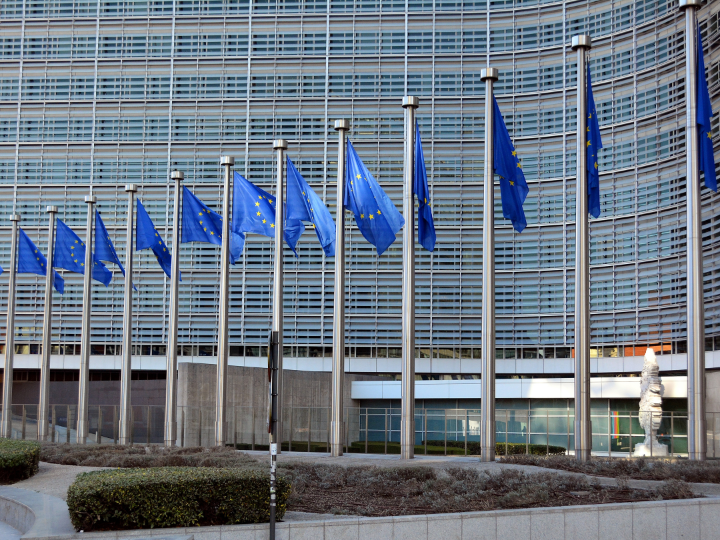by Aurelie Pugnet
A majority of EU countries look to slash a proposed text on ramping up ammunition production in the bloc, accusing the European Commission of taking advantage of the emergency situation to usurp their powers, several EU diplomats told EURACTIV.
A total of 21 member states are in favour deleting several provisions from the Act to Support Production of Ammunition (ASAP), initially proposed to increase European industry’s capacity for producing ammunition to one million shells in the next year, several EU diplomats told EURACTIV.
The group, led by Berlin, is denouncing the EU executive’s “overreach” on member states’ competencies, which they call “unnecessary”, one of the EU diplomats said.
Non-supporters of this push against the Commission’s proposal are Belgium, Bulgaria, Estonia, Malta, and Luxemburg, while Sweden, which holds the EU’s rotating presidency, is considered neutral as it chairs the negotiations, several EU diplomats said.
The mutiny comes as EU ambassadors were expected to agree on Wednesday (14 June) on their position to start inter-institutional negotiations with the European Commission and the European Parliament, which already endorsed the text earlier this month.
The text proposed by the European Commission last month aims to clear hurdles to facilitate the ramp-up of ammunition production across the bloc. The boost would help fill the gaps in the EU members’ stockpiles and meet Ukraine’s urgent ammunition needs.
However, the regulatory waivers proposed by the EU executive have irked member states wary of protecting their national companies and competencies.
At the heart of the debate lies whether to give the European Commission and a small group of member states permission to place priority-rated orders.
“The Council is almost 100% unified in its disgust of priority-rated orders, and it’s a clear sign the Commission creep on ASAP is not tolerated by member states,” a second EU diplomat told EURACTIV.
Member states also wish to scrap the constraints on companies to share sensitive information with the EU executive to map out potential supply chain bottlenecks and opportunities.
They would also delete the companies’ right, under the framework of the regulation, to do intra-EU transfer of military equipment without the government-sponsored export licence usually required.
Stepping into member states’ territory
EURACTIV reported last month that EU diplomats and industry representatives raised these questions since the beginning of negotiations.
The proposal is “too intrusive”, a third EU diplomat also said.
“We have identified several regulatory barriers to ramp-up (…) to lift temporarily,” Internal Market Commissioner Thierry Breton, also in charge of the European defence industry, said when presenting the proposal.
Supporting priority-rated orders, ”it is important to be able to redirect current production towards Ukraine’s needs,” Breton then said.
Defence-related industries have always held a special place in each member state, as their main client keeping them afloat is often the government itself. They are considered ‘sensitive’ industries, the implications of which have strong national security interests.
In deleting these articles, the Council would, however, speed up the negotiation process on the regulation, a fourth diplomat told EURACTIV.
“The aim is to have an instrument working before the summer break already, as we need to incentivise member states to increase their ammunition production capacity urgently, they said.
“To finalise and agree on the priority-related orders would take a lot of time, might be even a year (…),” they also said.
The Swedish presidency also proposed other options to the member states, according to EURACTIV’s information, but they have not seemed to have appealed to member states.
One included amendments to limit the companies’ information sharing to a voluntary basis and limit the priority-rated orders in decreasing their scope, deleting the possibility to impose penalties and increasing member states’ control as a safeguard.
Another option included the complete cross-out of the companies’ information sharing, limiting the scope of the priority-rated orders to the companies benefiting from significant support of EU funds, deleting the possibility to impose penalties and increasing member states’ control as a safeguard.
War economy mode has to wait
Member states could come back to the negotiating table to agree on a later version of the priority-rated orders, but that “will depend on the talks and debates ahead”, the fourth EU diplomat said.
However, This move would delete a large part of the text’s substance, as these articles hold the most novel part of the proposal made by the EU executive and give a chance to potentially speed up the manufacturing process.
“We need to switch to “war economy” mode,” Breton also said when presenting the regulation.
With this proposal, “I am confident that within 12 months, we will be able to increase our production capacity to 1 million rounds per year in Europe,” he told reporters.
According to member states’ estimates, Ukraine uses around 60,000-210,000 artillery shells per month, whereas Russia fires about 600,000-1,800,000 – ten times as much.
*first published in: Euractiv.com




 By: N. Peter Kramer
By: N. Peter Kramer

